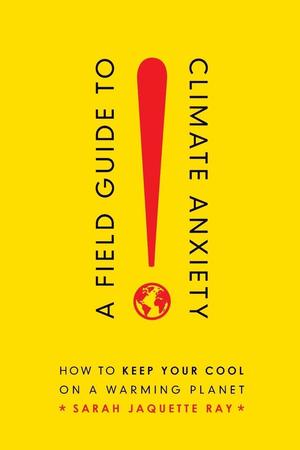Join ND Energy for its next book review and discussion on A Field Guide to Climate Anxiety: How to Keep Your Cool on a Warming Planet by Sarah Jaquette Ray.

Book Description
A youth movement is reenergizing global environmental activism. The “climate generation”—late millennials and iGen, or Generation Z—is demanding that policy makers and government leaders take immediate action to address the dire outcomes predicted by climate science. Those inheriting our planet’s environmental problems expect to encounter challenges, but they may not have the skills to grapple with the feelings of powerlessness and despair that may arise when they confront this seemingly intractable situation.
Drawing on a decade of experience leading and teaching in college environmental studies programs, Sarah Jaquette Ray has created an “existential tool kit” for the climate generation. Combining insights from psychology, sociology, social movements, mindfulness, and the environmental humanities, Ray explains why and how we need to let go of eco-guilt, resist burnout, and cultivate resilience while advocating for climate justice. A Field Guide to Climate Anxiety is the essential guidebook for the climate generation—and perhaps the rest of us—as we confront the greatest environmental threat of our time.
About the Author
Sarah Jaquette Ray is a professor of environmental studies at Humboldt State University, where she also leads the BA program in Environmental Studies. Her areas of interest are the environmental humanities, environmental justice, climate anxiety, emotions and the college classroom, social movement theory, disability studies, and cultural studies. She did her PhD at the University of Oregon in Environmental Sciences, Studies, and Policy, an MA in American Studies at UT-Austin, and a BA in Religious Studies and Women’s Studies at Swarthmore College.
Discussion Schedule
Discussions will be held on Wednesdays from 12-1 p.m. (ET) as follows:
June 17, Chapters 1-3: (1) Get Schooled on the Role of Emotions in Climate Justice Work, (2) Cultivate Climate Wisdom, (3) Claim Your Calling and Scale Your Action
July 1, Chapters 4-6: (4) Hack the Story, (5) Be Less Right and More in Relation, (6) Move Beyond Hope, Ditch Guilt, and Laugh More
July 15, Chapters 7-8: (7) Resist Burnout, (8) Conclusion: Feed What you Want to Grow
If you are interested in joining us, please contact Ginger Sigmon or Barbara Villarosa for the Zoom link.
You are welcome to join at anytime!
Originally published at energy.nd.edu.